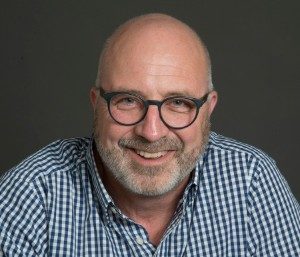 As we sat around the restaurant table on Martin Luther King Day – a near-60-year-old white man, a near-30-year-old white man and a mid-30s black man – we discovered we had stumbled into the very thing that can make a difference in our troubled world. We were engaging in meaningful conversation, actually listening to each other.
As we sat around the restaurant table on Martin Luther King Day – a near-60-year-old white man, a near-30-year-old white man and a mid-30s black man – we discovered we had stumbled into the very thing that can make a difference in our troubled world. We were engaging in meaningful conversation, actually listening to each other.
The lunch appointment happened almost at the last minute, and it was almost by happenstance that all three of us ended up there together. One was a brand-new friend to me and a fellow pastor, the other a friend of about two years who came to our church because he found welcome as a gay man.
I learned so much from them both that day. It was the best kind of learning and the kindest gift of all for the national holiday when we remember God’s Drum Major for Justice.
“It seems like these days especially we’re losing ground on treating everyone equally, and sometimes I want to give up the fight.”
My white friend and I picked up a previous conversation we had about white privilege, which he had been struggling to understand. Or, at least, struggling to understand in the way it is normally explained. My friend, an engineer, says if we were honest about all this, we would not talk about white privilege so much as non-white oppression.
It’s not that all white people live in privilege when compared to what any of us might consider a baseline of normative life; rather, it’s that so many who are not white are pressed down far below any semblance of a normative baseline. If we were honest, my friend said, we would talk about oppression and not just privilege.
As we talked about the injustices of the world, my white friend asked me if I ever get discouraged and overwhelmed. I said I absolutely do, even sometimes to the point of paralysis. It seems like these days especially we’re losing ground on treating everyone equally, and sometimes I want to give up the fight.
My young black friend told us about the impending birth of his son. Then he quoted from memory lines from Langston Hughes’ poem “Mother to Son.” The mother tells her son that life for her hasn’t been a crystal stair. It’s had tacks and splinters and torn-up boards on a bare floor.
“But all the time, I’se been a-climbin’ on, And reachin’ landin’s, And turnin’ corners, And sometimes goin’ in the dark,” she says. And then she gives this instruction: “So, boy, don’t you turn back. Don’t you set down on the steps. ’Cause you finds it’s kinder hard.”
Well, now.
It is the very definition of white privilege to think we can sit down on the stairs just because the work is hard. God help us. God help me.
I was reminded then of something I had heard the day before from another poet. Our pastor in his Sunday sermon quoted Roger Housden to make a point about the challenges of trying to bring about change in the world. In a reflection on Mary Oliver’s “The Journey,” Housden writes:
“Whatever your circumstances, people will start to give you advice as soon as you disturb the status quo. That advice is likely to be bad. It is bad because they are seeking, not to further understand your calling, but to preserve the world as they know it.”
So, in this tumultuous time in a divided America, on the first Martin Luther King Day of a new decade, I learned again the importance of listening deeply to those who want to change the world – even when the listener is afraid. Which it turns out is better than wanting to change the world and listening only to those who are afraid.
